#Organization
Text
#radical feminism#miles tails prower#cleancore#anorex14#pokemon scarlet and violet#2pac#damon salvatore#protein#spiderman into the spiderverse#pokemon go#acnh#organization#erica mena
123 notes
·
View notes
Text
#briefs bulge#holding hands#mustang#nightmare before christmas#grace boor#spicy newds#emotional abuse#wakanda forever#cleancore#pokemon scarlet and violet#protein#pokemon go#organization#the owl house fanart#snacks
128 notes
·
View notes
Text

"If the alphabet soup of communist parties ever actually pivoted toward militancy (they won’t, but if they did) then they’d literally be setting themselves up for immediate repression.
Anarchy, on the other hand, is a flawed and centerless constellation of relationships, which is to say anarchy is built on affinity, trust, and reciprocal knowledge. Pittsburgh anarchist scenes are just as fragmented as the Left. It is true that “we” do struggle to sustain coordination and momentum, beyond the intermediate term. Like every movement, anarchy waxes and wanes. I couldn’t care less. Any communist or anarchist who believes that revolt in the united settler-states actually depends on the strength of “the Left” is deluding themself. Revolt happens with or without us. So rather than waste my time obsessing over the strength of some organization or ideology’s influence in a given region, I’d rather learn more projectual approaches that might contribute to conflictuality. I know some of you reading this are studying this framework as well, and I look forward to discovering your projects, wherever they may incite or strike.
To me, it makes more sense for “the movement” to refer to a circulation of tactics, skills and projects within and between radical social scenes… and that movement sure as hell doesn’t have much to do with the political organizations that fill my email’s spam folder."
Fuck PSL.
61 notes
·
View notes
Text
CURSE OF STRAHD: HUNTED
THE CAST







FROM LEFT TO RIGHT, WE HAVE:
ARLEN: A werewolf hunter from Faerûn who found a way through the mists to pursue an old adversary from his past. [played by @new-austin]
CRAFINE: A kenku antipaladin from Eberron trying to atone for past mistakes; the only one actually invited to Barovia. [played by @diamanti91]
GISELLE: A young romantic searching for her fiance, with whom she was supposed to have eloped. She's recently discovered her sorcerous bloodline. She will never assume malice where innocence can be inferred. [played by @amatres]
MELCHIOR: A "werewolf hunter", a bard, and a native Barovian, he gets tangled up in the party's affairs (and the party in his). [note: my old PC, retired after session 5]
LUNE: An elf who has been here before and is returning here again, they're a person of few words and fewer questions. [played by @cassynite]
VAYAGOL: A kalashtar cleric who fell through the planes into Barovia from Eberron, having accidentally been dragged alone with Crafine. She tries to see the good in everyone but struggles with him. [played by @screams-4-memes]
ISMAEL: A stranger to Barovia and to most things, Ismael woke up in Sigil two months ago with no memory of his life before. Now teamed up with the party, he struggles to balance the loss of his memory with the possible explanations for his powers. [my PC]
note: all character art seen here was either drawn by the players or commissioned/gifted respectively.
#organization#cos: hunted#cos: arlen#cos: crafine#cos: giselle#cos: melchior#cos: lune#cos: vayagol#cos: ismael#cos: the party#curse of strahd
25 notes
·
View notes
Text

A.2.11 Why are most anarchists in favour of direct democracy?
For most anarchists, direct democratic voting on policy decisions within free associations is the political counterpart of free agreement (this is also known as “self-management”). The reason is that “many forms of domination can be carried out in a ‘free.’ non-coercive, contractual manner… and it is naive… to think that mere opposition to political control will in itself lead to an end of oppression.” [John P. Clark, Max Stirner’s Egoism, p. 93] Thus the relationships we create within an organisation is as important in determining its libertarian nature as its voluntary nature (see section A.2.14 for more discussion).
It is obvious that individuals must work together in order to lead a fully human life. And so, ”[h]aving to join with others humans” the individual has three options: “he [or she] must submit to the will of others (be enslaved) or subject others to his will (be in authority) or live with others in fraternal agreement in the interests of the greatest good of all (be an associate). Nobody can escape from this necessity.” [Errico Malatesta, Life and Ideas, p. 85]
Anarchists obviously pick the last option, association, as the only means by which individuals can work together as free and equal human beings, respecting the uniqueness and liberty of one another. Only within direct democracy can individuals express themselves, practice critical thought and self-government, so developing their intellectual and ethical capacities to the full. In terms of increasing an individual’s freedom and their intellectual, ethical and social faculties, it is far better to be sometimes in a minority than be subject to the will of a boss all the time. So what is the theory behind anarchist direct democracy?
As Bertrand Russell noted, the anarchist “does not wish to abolish government in the sense of collective decisions: what he does wish to abolish is the system by which a decision is enforced upon those who oppose it.” [Roads to Freedom, p. 85] Anarchists see self-management as the means to achieve this. Once an individual joins a community or workplace, he or she becomes a “citizen” (for want of a better word) of that association. The association is organised around an assembly of all its members (in the case of large workplaces and towns, this may be a functional sub-group such as a specific office or neighbourhood). In this assembly, in concert with others, the contents of his or her political obligations are defined. In acting within the association, people must exercise critical judgement and choice, i.e. manage their own activity. Rather than promising to obey (as in hierarchical organisations like the state or capitalist firm), individuals participate in making their own collective decisions, their own commitments to their fellows. This means that political obligation is not owed to a separate entity above the group or society, such as the state or company, but to one’s fellow “citizens.”
Although the assembled people collectively legislate the rules governing their association, and are bound by them as individuals, they are also superior to them in the sense that these rules can always be modified or repealed. Collectively, the associated “citizens” constitute a political “authority”, but as this “authority” is based on horizontal relationships between themselves rather than vertical ones between themselves and an elite, the “authority” is non-hierarchical (“rational” or “natural,” see section B.1 — “Why are anarchists against authority and hierarchy?” — for more on this). Thus Proudhon:
“In place of laws, we will put contracts [i.e. free agreement]. — No more laws voted by a majority, nor even unanimously; each citizen, each town, each industrial union, makes its own laws.” [The General Idea of the Revolution, pp. 245–6]
Such a system does not mean, of course, that everyone participates in every decision needed, no matter how trivial. While any decision can be put to the assembly (if the assembly so decides, perhaps prompted by some of its members), in practice certain activities (and so purely functional decisions) will be handled by the association’s elected administration. This is because, to quote a Spanish anarchist activist, “a collectivity as such cannot write a letter or add up a list of figures or do hundreds of chores which only an individual can perform.” Thus the need “to organise the administration.” Supposing an association is “organised without any directive council or any hierarchical offices” which “meets in general assembly once a week or more often, when it settles all matters needful for its progress” it still “nominates a commission with strictly administrative functions.” However, the assembly “prescribes a definite line of conduct for this commission or gives it an imperative mandate” and so “would be perfectly anarchist.” As it “follows that delegating these tasks to qualified individuals, who are instructed in advance how to proceed, … does not mean an abdication of that collectivity’s own liberty.” [Jose Llunas Pujols, quoted by Max Nettlau, A Short History of Anarchism, p. 187] This, it should be noted, follows Proudhon’s ideas that within the workers’ associations “all positions are elective, and the by-laws subject to the approval of the members.” [Proudhon, Op. Cit., p. 222]
Instead of capitalist or statist hierarchy, self-management (i.e. direct democracy) would be the guiding principle of the freely joined associations that make up a free society. This would apply to the federations of associations an anarchist society would need to function. “All the commissions or delegations nominated in an anarchist society,” correctly argued Jose Llunas Pujols, “must be subject to replacement and recall at any time by the permanent suffrage of the section or sections that elected them.” Combined with the “imperative mandate” and “purely administrative functions,” this “make[s] it thereby impossible for anyone to arrogate to himself [or herself] a scintilla of authority.” [quoted by Max Nettlau, Op. Cit., pp. 188–9] Again, Pujols follows Proudhon who demanded twenty years previously the “implementation of the binding mandate” to ensure the people do not “adjure their sovereignty.” [No Gods, No Masters, vol. 1, p. 63]
By means of a federalism based on mandates and elections, anarchists ensure that decisions flow from the bottom-up. By making our own decisions, by looking after our joint interests ourselves, we exclude others ruling over us. Self-management, for anarchists, is essential to ensure freedom within the organisations so needed for any decent human existence.
Of course it could be argued that if you are in a minority, you are governed by others (“Democratic rule is still rule” [L. Susan Brown, The Politics of Individualism, p. 53]). Now, the concept of direct democracy as we have described it is not necessarily tied to the concept of majority rule. If someone finds themselves in a minority on a particular vote, he or she is confronted with the choice of either consenting or refusing to recognise it as binding. To deny the minority the opportunity to exercise its judgement and choice is to infringe its autonomy and to impose obligation upon it which it has not freely accepted. The coercive imposition of the majority will is contrary to the ideal of self-assumed obligation, and so is contrary to direct democracy and free association. Therefore, far from being a denial of freedom, direct democracy within the context of free association and self-assumed obligation is the only means by which liberty can be nurtured (“Individual autonomy limited by the obligation to hold given promises.” [Malatesta, quoted by quoted by Max Nettlau, Errico Malatesta: The Biography of an Anarchist]). Needless to say, a minority, if it remains in the association, can argue its case and try to convince the majority of the error of its ways.
And we must point out here that anarchist support for direct democracy does not suggest we think that the majority is always right. Far from it! The case for democratic participation is not that the majority is always right, but that no minority can be trusted not to prefer its own advantage to the good of the whole. History proves what common-sense predicts, namely that anyone with dictatorial powers (by they a head of state, a boss, a husband, whatever) will use their power to enrich and empower themselves at the expense of those subject to their decisions.
Anarchists recognise that majorities can and do make mistakes and that is why our theories on association place great importance on minority rights. This can be seen from our theory of self-assumed obligation, which bases itself on the right of minorities to protest against majority decisions and makes dissent a key factor in decision making. Thus Carole Pateman:
“If the majority have acted in bad faith… [then the] minority will have to take political action, including politically disobedient action if appropriate, to defend their citizenship and independence, and the political association itself… Political disobedience is merely one possible expression of the active citizenship on which a self-managing democracy is based … The social practice of promising involves the right to refuse or change commitments; similarly, the practice of self-assumed political obligation is meaningless without the practical recognition of the right of minorities to refuse or withdraw consent, or where necessary, to disobey.” [The Problem of Political Obligation, p. 162]
Moving beyond relationships within associations, we must highlight how different associations work together. As would be imagined, the links between associations follow the same outlines as for the associations themselves. Instead of individuals joining an association, we have associations joining confederations. The links between associations in the confederation are of the same horizontal and voluntary nature as within associations, with the same rights of “voice and exit” for members and the same rights for minorities. In this way society becomes an association of associations, a community of communities, a commune of communes, based upon maximising individual freedom by maximising participation and self-management.
The workings of such a confederation are outlined in section A.2.9 ( What sort of society do anarchists want?) and discussed in greater detail in section I (What would an anarchist society look like?).
This system of direct democracy fits nicely into anarchist theory. Malatesta speaks for all anarchists when he argued that “anarchists deny the right of the majority to govern human society in general.” As can be seen, the majority has no right to enforce itself on a minority — the minority can leave the association at any time and so, to use Malatesta’s words, do not have to “submit to the decisions of the majority before they have even heard what these might be.” [The Anarchist Revolution, p. 100 and p. 101] Hence, direct democracy within voluntary association does not create “majority rule” nor assume that the minority must submit to the majority no matter what. In effect, anarchist supporters of direct democracy argue that it fits Malatesta’s argument that:
“Certainly anarchists recognise that where life is lived in common it is often necessary for the minority to come to accept the opinion of the majority. When there is an obvious need or usefulness in doing something and, to do it requires the agreement of all, the few should feel the need to adapt to the wishes of the many … But such adaptation on the one hand by one group must be on the other be reciprocal, voluntary and must stem from an awareness of need and of goodwill to prevent the running of social affairs from being paralysed by obstinacy. It cannot be imposed as a principle and statutory norm…” [Op. Cit., p. 100]
As the minority has the right to secede from the association as well as having extensive rights of action, protest and appeal, majority rule is not imposed as a principle. Rather, it is purely a decision making tool which allows minority dissent and opinion to be expressed (and acted upon) while ensuring that no minority forces its will on the majority. In other words, majority decisions are not binding on the minority. After all, as Malatesta argued:
“one cannot expect, or even wish, that someone who is firmly convinced that the course taken by the majority leads to disaster, should sacrifice his [or her] own convictions and passively look on, or even worse, should support a policy he [or she] considers wrong.” [Errico Malatesta: His Life and Ideas, p. 132]
Even the Individual Anarchist Lysander Spooner acknowledged that direct democracy has its uses when he noted that ”[a]ll, or nearly all, voluntary associations give a majority, or some other portion of the members less than the whole, the right to use some limited discretion as to the means to be used to accomplish the ends in view.” However, only the unanimous decision of a jury (which would “judge the law, and the justice of the law”) could determine individual rights as this “tribunal fairly represent[s] the whole people” as “no law can rightfully be enforced by the association in its corporate capacity, against the goods, rights, or person of any individual, except it be such as all members of the association agree that it may enforce” (his support of juries results from Spooner acknowledging that it “would be impossible in practice” for all members of an association to agree) [Trial by Jury, p. 130-1f, p. 134, p. 214, p. 152 and p. 132]
Thus direct democracy and individual/minority rights need not clash. In practice, we can imagine direct democracy would be used to make most decisions within most associations (perhaps with super-majorities required for fundamental decisions) plus some combination of a jury system and minority protest/direct action and evaluate/protect minority claims/rights in an anarchist society. The actual forms of freedom can only be created through practical experience by the people directly involved.
Lastly, we must stress that anarchist support for direct democracy does not mean that this solution is to be favoured in all circumstances. For example, many small associations may favour consensus decision making (see the next section on consensus and why most anarchists do not think that it is a viable alternative to direct democracy). However, most anarchists think that direct democracy within free association is the best (and most realistic) form of organisation which is consistent with anarchist principles of individual freedom, dignity and equality.
#vote#voting#elections#faq#anarchy faq#revolution#anarchism#daily posts#communism#anti capitalist#anti capitalism#late stage capitalism#organization#grassroots#grass roots#anarchists#libraries#leftism#social issues#economy#economics#climate change#climate crisis#climate#ecology#anarchy works#environmentalism#environment#solarpunk#anti colonialism
24 notes
·
View notes
Text
How to Stop Procrastinating by Managing Your Emotions
Procrastination happens when we delay doing things, and it's often connected to our emotions. Feelings like being afraid to fail, feeling worried or stressed, getting bored, or lacking motivation can all contribute to procrastination. To stop procrastinating and get more things done, it's important to learn how to handle our emotions better.
Boredom:
Break the task into smaller, more engaging sub-tasks.
Find ways to make the task more interesting or challenging.
Set a timer and work on the task for a specific amount of time, followed by a short break doing something enjoyable.
Feeling Overwhelmed:
Prioritize tasks and focus on one thing at a time.
Break the task into smaller, more manageable steps.
Delegate some parts of the task if possible or seek help from others.
Use tools like to-do lists or task management apps to stay organized.
Anxiety:
Practice deep breathing or mindfulness techniques to calm yourself.
Challenge negative thoughts and replace them with more positive and realistic ones.
Start with the easier or less intimidating aspects of the task to build momentum.
Set realistic expectations and remind yourself that it's okay to make mistakes.
Self-Doubt:
Focus on past accomplishments and successes to boost your confidence.
Seek support or feedback from others to gain reassurance.
Remind yourself of your skills and capabilities to tackle the task.
Use positive affirmations to counteract negative self-talk.
Perfectionism:
Embrace the concept of "good enough" rather than seeking perfection.
Set realistic and achievable goals for each task.
Recognize that mistakes and imperfections are part of the learning process and growth.
Indecisiveness:
Break decisions into smaller steps and make one small decision at a time.
Set a time limit for making decisions to avoid overthinking.
Trust your instincts and make the best decision you can with the information available.
Apathy or Lack of Interest:
Find aspects of the task that align with your values or long-term goals.
Break the task into smaller, more manageable parts and focus on completing one at a time.
Reward yourself for completing the task to make it more appealing.
Stress or Burnout:
Practice stress-reduction techniques such as meditation, exercise, or spending time in nature.
Break tasks into smaller steps to reduce the feeling of overwhelm.
Prioritize self-care and take breaks to avoid burnout.
Feeling Uninspired or Creatively Blocked:
Engage in activities that stimulate creativity, such as brainstorming, mind mapping, or seeking inspiration from others' work.
Start with a simple and basic version of the task to get the creative juices flowing.
Collaborate with others or seek feedback to gain new perspectives.
Fear of Success:
Identify and challenge the negative beliefs or fears that may be holding you back.
Visualize the positive outcomes of completing the task successfully.
Focus on the benefits and personal growth that come with success.
Impatience:
Break long-term goals into smaller milestones to track progress.
Practice mindfulness to stay present and patient throughout the process.
Remind yourself that progress takes time and effort.
Lack of Confidence:
Celebrate your past accomplishments to boost your confidence.
Seek support and encouragement from friends, family, or mentors.
Focus on building specific skills related to the task to increase confidence.
Avoiding Discomfort:
Acknowledge that discomfort is a natural part of growth and improvement.
Break tasks into smaller steps and tackle the more challenging aspects gradually.
Remind yourself of the long-term benefits of facing discomfort.
Overestimating Future Motivation:
Practice discipline and commit to starting tasks even when motivation is low.
Set specific deadlines for tasks to create a sense of urgency.
Establish a routine that includes regular work on the task to build consistency.
#discipline#motivationalquotes#motivateyourself#get motivated#organization#procrastination#emotional intelligence#self improvement#selfimprovement#self love#self development#personal improvement#personal growth#personal development#level up journey#success mindset#positive mindset#business mindset#goalsetting#life goals
8K notes
·
View notes
Text
getting seriously organized⋆.ೃ࿔*:・📄

the importance of organization - the nature of life is that it can seem really disorganized and chaotic but it doesn't absolutely have to be that way! organization helps to improve your efficiency and overall add structure to ur life.
agendas - a daily to do list is a MUST. i use notion to organize my time. i separate what i need to do into categories (A and B).

CATEGORY A ; tasks that hold the highest level of importance.
CATEGORY B ; tasks that are more simple (its not gonna nip u in the bud if u dont do a task in category b)
monthly calendars - monthly calendars are so helpful because i set new goals for every month, and when everything is already planned out and in front of you it makes it feel a million times easier to achieve those goals.
list important events
birthdays
appointments etc
lists - making lists is therapeutic for me at this point. its actually a lot of fun so i highly recommend it, but instead of just making lists for fun, you could make lists that'll be useful in the future. for example...
restock lists (lists of things that you consistently need and use)
grocery lists
meal prep - meal prep is so useful because it makes grocery shopping easier, and its easier to eat consistently when u know what ur going to eat
#advice#it girl#becoming that girl#that girl#it girl energy#honeytonedhottie⭐️#organization#self discipline#self development#self improvement#productivity#dream girl tips#dream girl#dream life#notion✍🏽🎀#pink academia#girl blog#girlblogging#calendars#planner#time management#self management
797 notes
·
View notes
Text
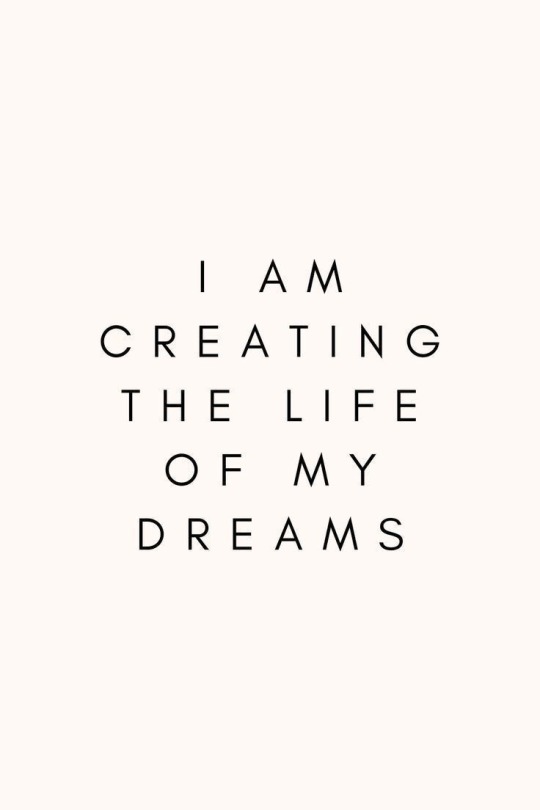



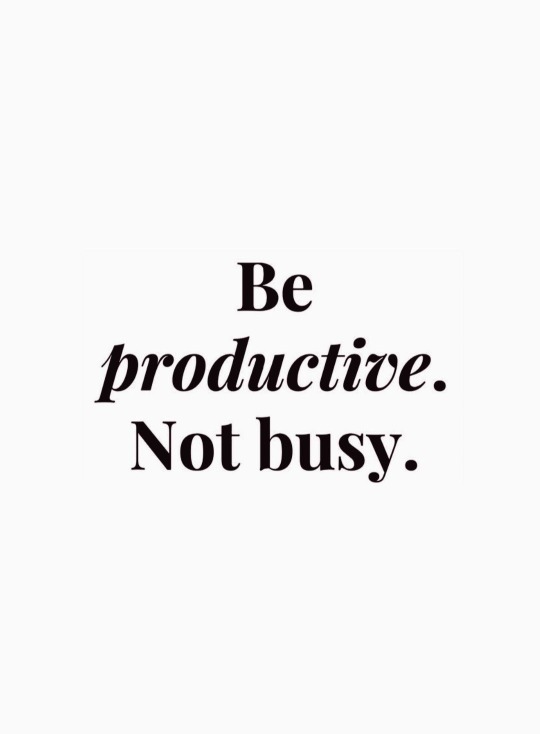
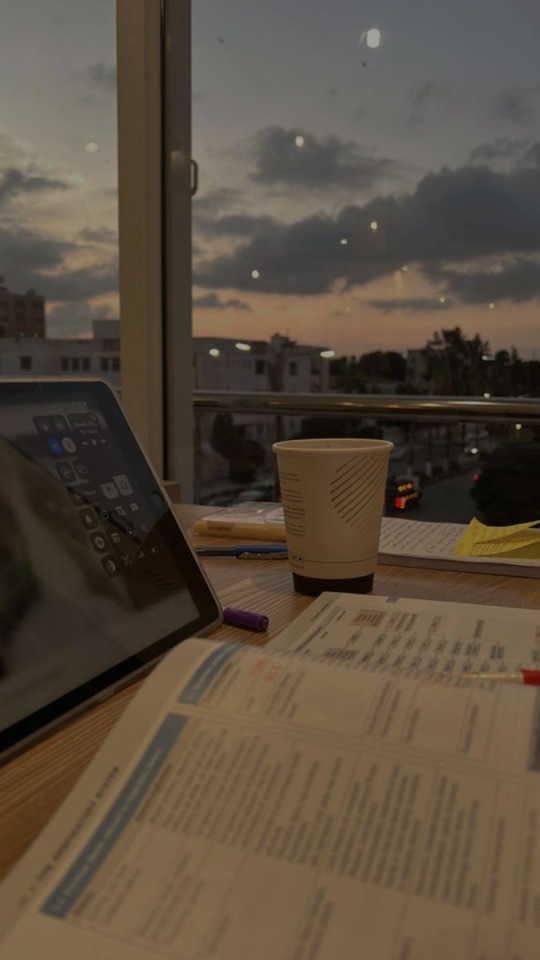
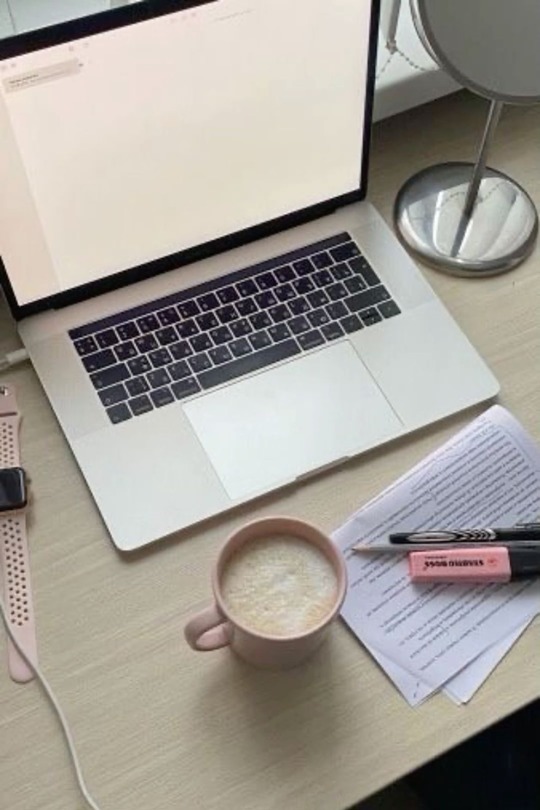


#feminine energy#leveled up mindset#luxury black women#black luxury#black femininity#black girl luxury#soft moodboard#black girl moodboard#moodboard#organization#high maintenance#luxury#rich black girls#soft black women#career development#career journey
439 notes
·
View notes
Text
Can't overemphasize how useful it is to own multiples of important things.
Deodorant? One in the bathroom and one in my closet, because those are the places I'm most likely to be naked and remember I need it. Lotion? One in the bathroom and one next to my bed, also because those are the places I remember it. I keep an air freshener in the bathroom and another one next to the place where I air out my sweaty work clothes.
I have one inhaler in my backpack, one in my car, and one in my leg bag. Hair clips, headbands, and hair ties? Some on the wall hooks in my room, others looped around the car gearshift. Teriyaki sauce? A bottle in the kitchen fridge, and packets in my room in case I forget the bottle.
Yeah it's redundant, but I promise that the two-pack of deodorant "costs" less to me than spending a day sticky and damp. It isn't wasteful if the system makes you use the thing. Even the bowl on my desk for pocket stuff (knife phone wallet keys) has a spare car key in case I misplace the original.
People who expect me to remember stuff are wrong. I do what keeps me clean and fed and happy.
226 notes
·
View notes
Text


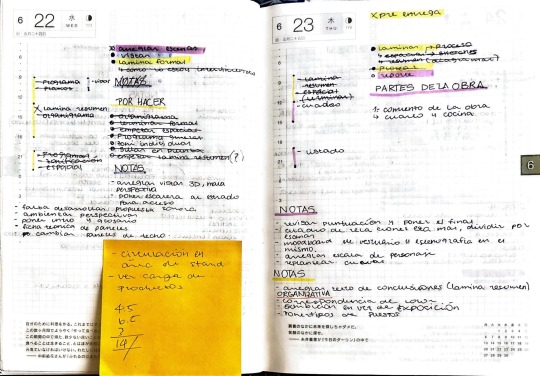

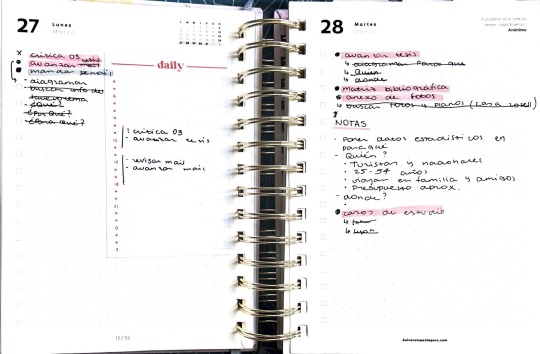

years in planners
Found my old Hobonichi Techo and decided to scan my favourite pages from the last 3 years in planners. From my third year of uni till the last one, 2021-2023. Starting with my 2021 bullet journal and ending on this year’s planner/filofax
#studyblr#studygram#studying#studyspo#mine#study#studymotivation#student#university#studyday#bulletjounaladdict#bulletjournal#bullet journal#bujo#planner#filofax#student life#organization
379 notes
·
View notes
Text
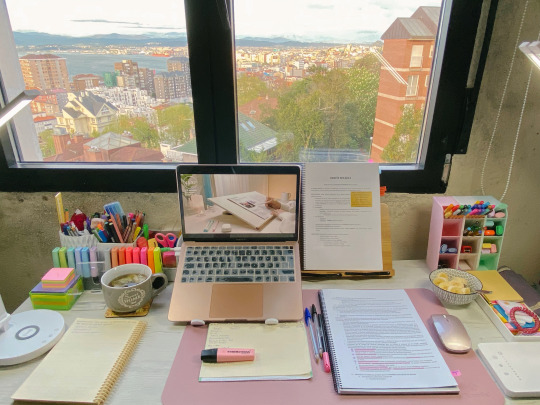
Good morning, StudyBlrs.
EXAM DAY:
I woke up early today to revise some questions that might be asked in my surgery exam. I go to classes and I try to understand what the teacher is focusing on more. I always ask questions. I will let you know how it went.
I had no coffee today because I have noticed that on exam days I already have my adrenaline and energy up. So, I had a cup of tea and my banana for snack two hours after my proper breakfast.
@studywith-hada made this cool study with me video and I have used it today. So cool.
TODAY:
I decided to start my day with Neurophysiology.
I made a three tasks list and I will be using (as usual) my Korean study tracking.
Let's do this!


Have a blessed and productive week! :)
Iveth🌻
#she studies medicine#medical studyblr#studyblr#studyblr community#study blog#medical student#studystudystudy#100 days of efficient productivity challenge#studyspo#studygram#study#studying#study motivation#study notes#study tips#organization
355 notes
·
View notes
Text
Hi everyone
I just thought I would share this resources because it is mind blowing.
youtube
This girl has ADHD and talked about how she has always struggled with time blocking and keeping a calendar. She created a new method that works better for her.
Instead of having different coloured colours calendar for different areas of your life and then struggling to know what to do with events that belong to multiple areas. It works by having different colours for each calendar that helps you prioritise tasks. I myself have a hard time deciding what's important.
I have outlined my modified calendars that make sense for me but check out the video for hers.
Appointments
This calendar is for time sensitive things that have be done and/or would have a negative impact on others if you don't follow through. These can't be moved or would be really difficult to move.
Examples: actual appointments, work shifts, classes, scheduled group rehearsals/trainings, someone's birthday dinner/party
Bottlenecks
This calendar is for things that don't need to be done AT a specific time but do need to be done BY a specific time. This means they can be moved around whenever before the deadline but need to be done before the deadline otherwise they create a bottleneck in your schedule and lead to you getting overwhelmed.
Example: homework, taking the bins out, paying bills, filming youtube videos
Critical (yellow)
This calendar is for things that you deem critical to your goals and growth. These can be moved around if needed but are things you want to try your best to get done each day.
Examples: workouts, reading 10 pages of a book, doing a full skincare routine
Daily Routine
This calendar is for parts of your day that happen regularly. These can be moved around where needed.
Examples: habits, chores, meals, travel time
Extra Fancy
This calendar is for extra fancy stuff that your ideal self would like to get done. These are nice to do or want to do but nothing bad will happen if you don't do them.
Examples: doing a facemask, watching a movie, doing some arts and crafts
Favourable Rememberables
This calendar is for things that you need to remember in the future.
Examples: birthdays, days off, due dates (I recommend creating separate events for submitting assessments or paying the bill and put them as appointments which are your top priority)
I hope this can be useful to someone because I think it will have a big difference for me. 💗
#adhd#time management#studyblr#executive dysfunction#adhd brain#neurodiverse stuff#adhd problems#adult adhd#adhd things#adhd stuff#actually adhd#organization#organisation#planner#planning#scheduled#school#university#adulting#study motivation#google calendar#calendar#study tips#life hacks#college#procrastination#Youtube
784 notes
·
View notes
Photo
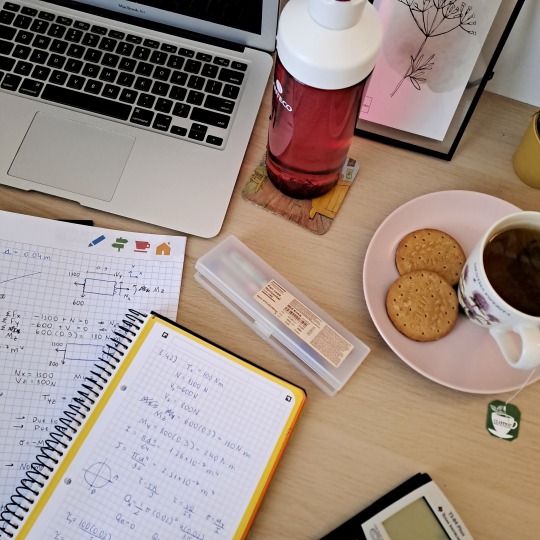
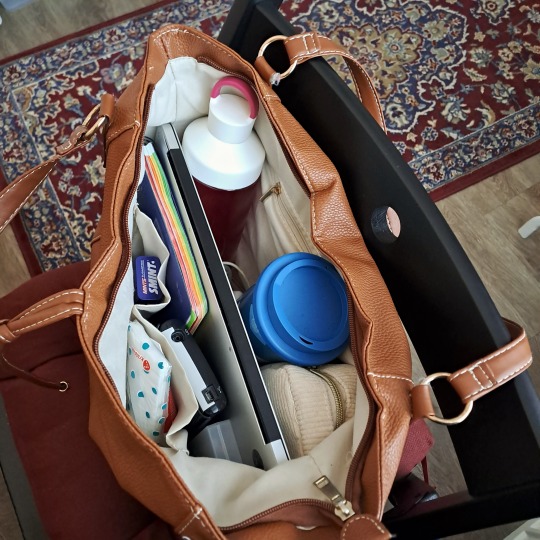
22nd March: I've fallen into the trap of getting a shoulder bag for uni because they look cute, but despite the shoulder pain, at least everything fits :')
1K notes
·
View notes
Text
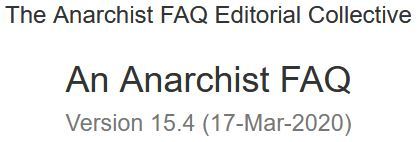
A.2.12 Is consensus an alternative to direct democracy?
The few anarchists who reject direct democracy within free associations generally support consensus in decision making. Consensus is based upon everyone on a group agreeing to a decision before it can be put into action. Thus, it is argued, consensus stops the majority ruling the minority and is more consistent with anarchist principles.
Consensus, although the “best” option in decision making, as all agree, has its problems. As Murray Bookchin points out in describing his experience of consensus, it can have authoritarian implications:
“In order… to create full consensus on a decision, minority dissenters were often subtly urged or psychologically coerced to decline to vote on a troubling issue, inasmuch as their dissent would essentially amount to a one-person veto. This practice, called ‘standing aside’ in American consensus processes, all too often involved intimidation of the dissenters, to the point that they completely withdrew from the decision-making process, rather than make an honourable and continuing expression of their dissent by voting, even as a minority, in accordance with their views. Having withdrawn, they ceased to be political beings--so that a ‘decision’ could be made… . ‘consensus’ was ultimately achieved only after dissenting members nullified themselves as participants in the process.
“On a more theoretical level, consensus silenced that most vital aspect of all dialogue, dissensus. The ongoing dissent, the passionate dialogue that still persists even after a minority accedes temporarily to a majority decision,… [can be] replaced… .by dull monologues — and the uncontroverted and deadening tone of consensus. In majority decision-making, the defeated minority can resolve to overturn a decision on which they have been defeated — they are free to openly and persistently articulate reasoned and potentially persuasive disagreements. Consensus, for its part, honours no minorities, but mutes them in favour of the metaphysical ‘one’ of the ‘consensus’ group.” [“Communalism: The Democratic Dimension of Anarchism”, Democracy and Nature, no. 8, p. 8]
Bookchin does not “deny that consensus may be an appropriate form of decision-making in small groups of people who are thoroughly familiar with one another.” But he notes that, in practical terms, his own experience has shown him that “when larger groups try to make decisions by consensus, it usually obliges them to arrive at the lowest common intellectual denominator in their decision-making: the least controversial or even the most mediocre decision that a sizeable assembly of people can attain is adopted—precisely because everyone must agree with it or else withdraw from voting on that issue” [Op. Cit., p.7]
Therefore, due to its potentially authoritarian nature, most anarchists disagree that consensus is the political aspect of free association. While it is advantageous to try to reach consensus, it is usually impractical to do so — especially in large groups — regardless of its other, negative effects. Often it demeans a free society or association by tending to subvert individuality in the name of community and dissent in the name of solidarity. Neither true community nor solidarity are fostered when the individual’s development and self-expression are aborted by public disapproval and pressure. Since individuals are all unique, they will have unique viewpoints which they should be encouraged to express, as society evolves and is enriched by the actions and ideas of individuals.
In other words, anarchist supporters of direct democracy stress the ”creative role of dissent” which, they fear, “tends to fade away in the grey uniformity required by consensus.” [Op. Cit., p. 8]
We must stress that anarchists are not in favour of a mechanical decision making process in which the majority just vote the minority away and ignore them. Far from it! Anarchists who support direct democracy see it as a dynamic debating process in which majority and minority listen to and respect each other as far possible and create a decision which all can live with (if possible). They see the process of participation within directly democratic associations as the means of creating common interests, as a process which will encourage diversity, individual and minority expression and reduce any tendency for majorities to marginalise or oppress minorities by ensuring discussion and debate occurs on important issues.
#faq#anarchy faq#revolution#anarchism#daily posts#communism#anti capitalist#anti capitalism#late stage capitalism#organization#grassroots#grass roots#anarchists#libraries#leftism#social issues#economy#economics#climate change#climate crisis#climate#ecology#anarchy works#environmentalism#environment#solarpunk#anti colonialism#mutual aid#cops#police
22 notes
·
View notes
Text
How To Plan Your Day 🌒📝💡✨
Start the night before. What do you need to do tomorrow to meet your needs? Write down the most important tasks you want to complete the next day. This gives you a clear starting point in the morning.
Create a morning routine that is focused on your well being. Exercise, meditate, read etc.
Make a list of all the things you need to do. Put the most important things at the top of the list.
Divide your day into chunks of time. Decide when you'll do each task.
Estimate the time it will take you to complete each task.
If a big task seems too hard, break it into smaller steps.
Batch the similar tasks together for maximum efficiency.
Try to do one thing at a time. Multitasking might not help you get things done better.
Don't plan too many things. Only plan what you can really do.
Check your progress during the day. Change your plans if things are not going as expected.
At the end of the day, think about what you did and what's left. Learn from what went well and what didn't.
Finish each day with a quick clean up. What can do you now to set up your spaces and routines for both self care and efficiency.
Choose what you'll wear the next day, including clothes, shoes, and accessories. This saves you time in the morning and helps you avoid last-minute outfit decisions.
If you have to take things with you (like a work bag or gym bag), pack it with everything you need. This prevents you from rushing around in the morning to gather your things.
Lay out items you'll need in the morning, like your keys, wallet, or important papers. This way, you won't have to search for them when you're in a rush.
Take some time to wind down before bed. Read a book, practice some light stretching, or do something relaxing to help you sleep better.
Charge your phone, tablet, or laptop overnight so you start the day with fully charged devices.
Set your alarm for the time you want to wake up. Having a consistent wake-up time helps regulate your body clock.
Try to avoid looking at screens (phones, tablets, computers) at least an hour before bed. The blue light from screens can interfere with sleep.
Take a moment to reflect on the day and think about what you're looking forward to tomorrow. Visualizing a positive morning can help set a good tone for the next day.
Pick a weekly prep day and clean the house, meal prep, review your calendar and to do list for the week ahead.
#personal improvement#personal development#personal growth#morning routine#night time routine#planning#organization#glow up tips#self reflection#self development#self help#self improvement#selfimprovement#self care#it girl#clean girl#dream girl#girlblogging#dream girl journey#dream girl tips#advice#level up journey#goals
2K notes
·
View notes
Text
restocking and replenishing⋆.ೃ࿔*:・✍🏽

im making this post cuz i think its helpful to keep track of what u normally need and normally buy + how long it lasts u until it needs to be replaced.

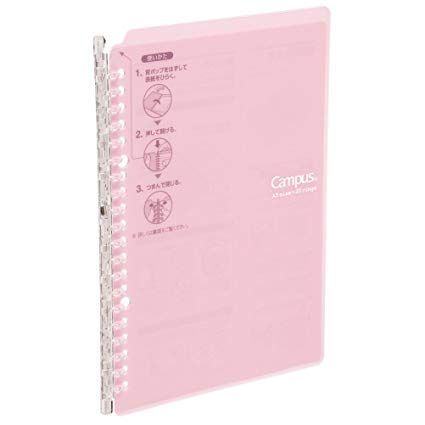
i separate mine weekly/monthly depending on what it is that i need, but by creating a sort of system like this u can save a lot of time when u go shopping, plus it'll bring ur organization to the next level.
HOW TO DO IT ;
so get some paper (preferably graphed paper, simply bcuz i find it neater and more aesthetically pleasing) and on one side write weekly and on the other side write monthly.
remember to use scented glitter gel pens and have FUN, make little doodles on the sides and decorate it with stickers when ur done.
on the weekly side write out what u need on a weekly basis. for example one thing on the weekly side of my list is sheet masks cuz i use them 1-2x a week.
use bullet points so that then everything is concise and easy to read, also when u go and buy them make sure to write the prices of those items, then u can use that data if u have other charts or lists ✨
on the monthly side write out what u need on a monthly basis. for example one thing on the monthly side of my list are my vitamins and my chlorophyll droplets.
DESIGNATE A DAY ;
have a designated day when u usually go and get whatever is on ur restock and replenish list. have some fun with it and make it a tradition of sorts even.
ur designated day should preferably be before ur week/month starts so that then u are fully equipped with what u need to feel and perform at ur best
my designated day is USUALLY saturdays and on my restock and replenish days i always have a kombucha and treat myself to something else that i want.
#honeytonedhottie⭐️#it girl#becoming that girl#self concept#self care#self love#that girl#it girl energy#dream girl#dream girl tips#dream life#organization#organization tips#self improvement#self reflection#self development#finance#tracking#lists#hyper femininity#girly#girl blogging#girl blog#romanticize
198 notes
·
View notes